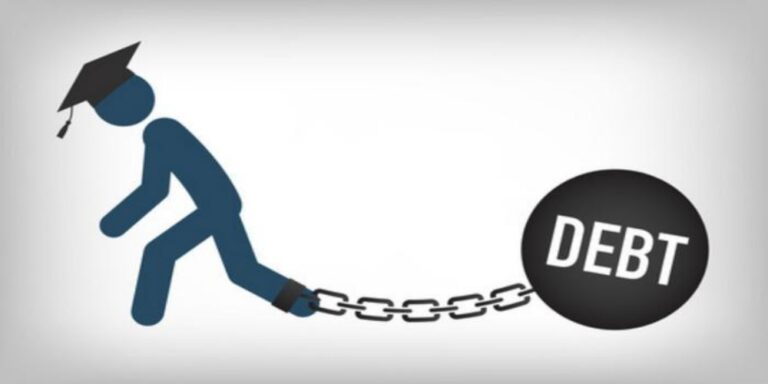Educational Reform: A Modest Proposal
Professor Seth Godwynn
Much has been said, especially coming from the Left, of the need to cancel student debt and allow free higher education for all.
Here at Edgeverse, we agree.
A quality education should be free for everyone!
However, sooner or later, somebody always has to pay. So let’s figure out who, what, and under what circumstances.
Debt Cancellation
Many students, especially in the US, wilfully commit to a three or four year higher education at the university of their choice, in full knowledge of the debt they would amass in the process. Current calls for debt-cancellation would mean that they would not have to pay, while everyone else who made a similar commitment in the past would have already paid in full.
This is, of course, grossly unfair on the people who have chosen to fulfill their obligations. The sense of privilege such people assert is beyond astounding. How dare they?!
However, there doesn’t have to be a polarising issue with only two options which boil down to either cancelling the debt or refusing to do so. There is a third option here and a reasonable compromise that can be made. We can simply cancel the debt, but in doing so, cancel the certification.
Any student that wants their debt cancelled could be allowed to do so, but they may claim no degree or qualification from that course. To do so would be fraud, and any such false claim should be charged to the full extent of the law—a law that needs to toughen up its penalties.
What’s that? They did the course, so they’re entitled to the certification? No. We’re suggesting that they’re entitled to the education, and they got that. They’re entitled to the debt cancellation and they got that too. The foot-up in life that certification might afford them is something entirely separate from education, and if that was what they enrolled in college for—amassing a huge debt in the process—then somebody needs to pay that debt, and that somebody should be the very same person who agreed to it.
Regulation
Moving forwards, the idea of cancelling certification is not a sustainable model and nor is it a desirable one. It’s merely a short-term means to an end and a neat way of making a pertinent point.
Here, we need to start basing higher education on a model that has worked very well for many decades. I’m talking, of course, about the Japanese healthcare system.
Right now, depending on where you live, compulsory education applies from ages 6 to 18. That’s elementary school through high school. This is taxpayer-funded and heavily regulated. So let’s extend this up to the first level of higher education, the bachelor degree, but make it optional—those who want it can, those that don’t, won’t; and in doing so we also allow some of the regulation to be outsourced to reputable third parties.
The universities themselves must be run as non-profit organizations, with fees and other costs predetermined. The curriculum for each subject must be approved by a government board in coordination with a reputable independent regulator. Each student will get a rounded education in the subject of their choice, and if they pass the course, they will get certification—a degree.
They will have to pay 30% of the school fees, but fees are carefully regulated so that if they were to cancel their Netflix, Hulu and Spotify accounts, they wouldn’t notice much of a difference in their standard of living. If they complete the course and get certification, the money they’ve paid will be refunded by their local municipality.
Voila! Free higher education, with a guarantee it will be a moderately good one.
On the other hand, more prestigious universities may choose not to go that route. You want their education, you pay for their education. They can teach what they like to who they like for whatever cost they like, but you must bear all costs, and the government is not going to loan you any money. Also, the piece of paper they give you when you complete their course is only worth as much as their credibility.
It says nothing about you or your scholastic achievements. It may as well be a mail-order vanity diploma that only certifies your willingness to part with hard earned cash for meaningless baubles and trinkets.
If the elite want to send their spawn to these establishments so they don’t have to mingle with normal people, out of some misplaced idea that they’re somehow superior, they’re more than welcome to do so. Ultimately the market will decide on which is worth more—an actual quality education with a certified degree, or a vanity liberal-arts diploma from some cowboy establishment like Oxford or Harvard.
And of course–this is just the beginning.




So there you have it, the best of both worlds. A tax funded quality higher education for everyone who wants one, the cheats don’t win, and nobody’s rights have been trampled on. It’s a win-win!
Many thanks for reading this article. We hope it was interesting, informative and entertaining. Follow us on social media or share our content on your own pages. It helps us grow so we can create more free content for you.

just ban student loans and make it so only people who are actually smart can go to university. That way everyone else can get a job doing normal things and society wont collapse…
College sucks. Learn Trades.
The whole university industry is an indentured servitude plot. They want people to extend their adolescence so they can rack up debt, Lack work experience and not possess useful skills. Academia outside of the STEM programs is the perfect plot to keep people in poverty. Remember, In most western societies student loan debt does not go away, even when you declare bankruptcy. Glad I went to university before prices got even worse. I am also so thankful my parents basically forced me to study something that had actual value.
When you’ve got US presidents literally advocating this stuff, it’s tough not to wonder if this is the plan…
I agree with everything Seth said. Smart chap!